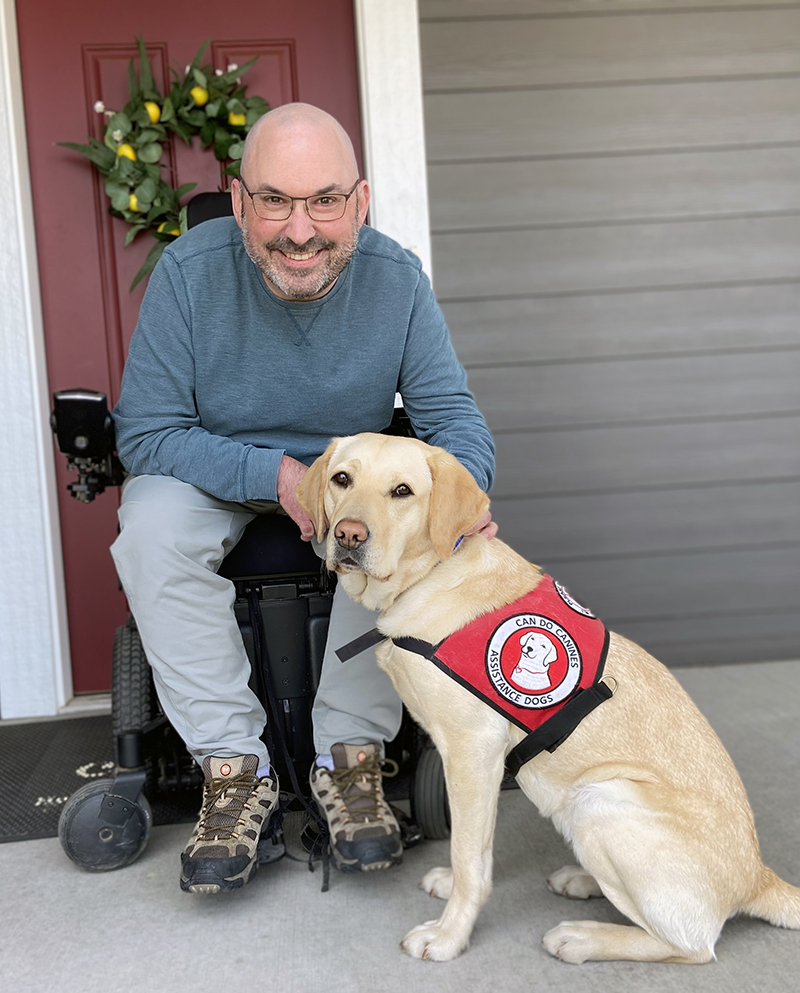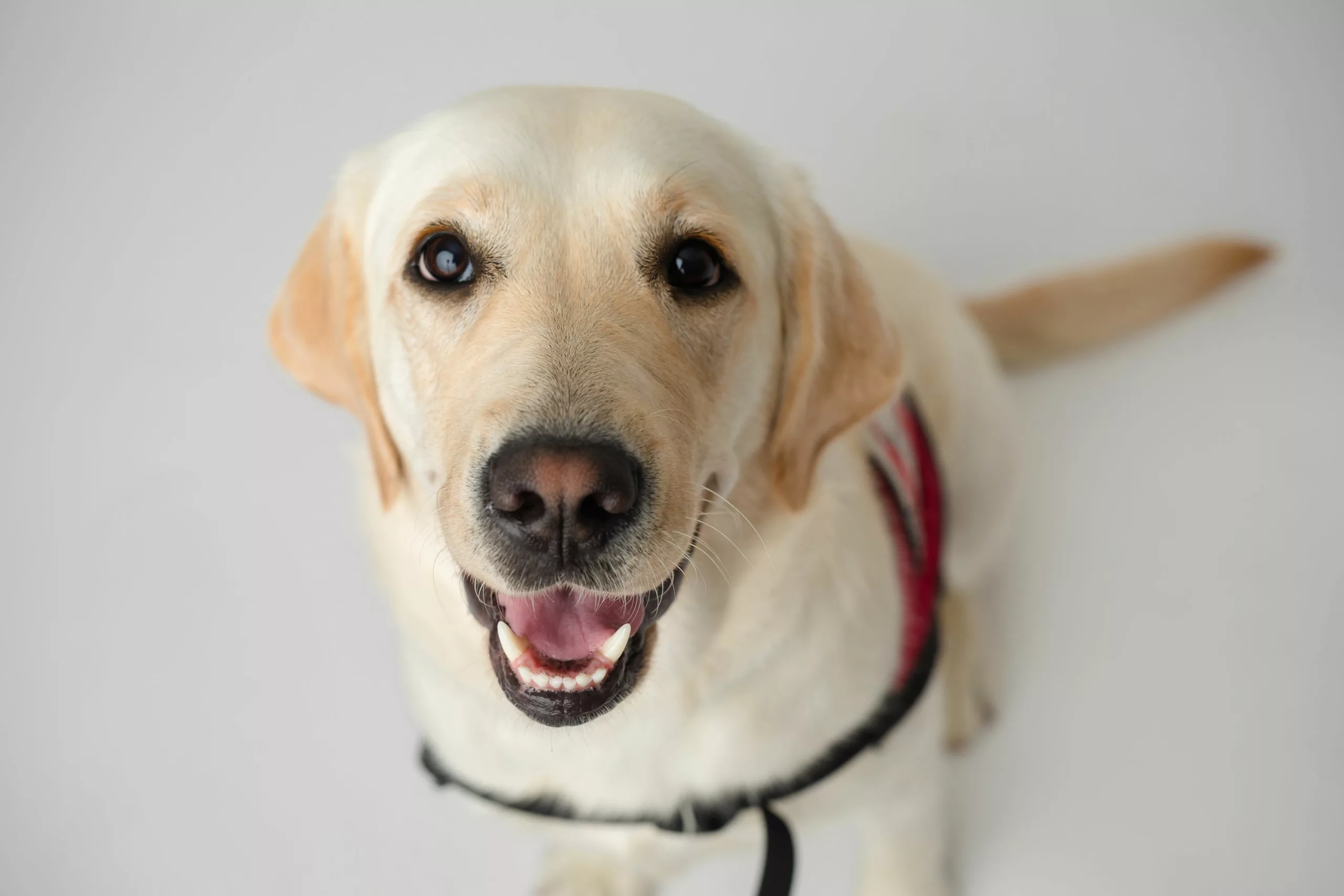Shutting doors. That’s what Steve, who was diagnosed with multiple sclerosis in 2001, says is one of the most difficult tasks for him to manage on his own, especially when he’s using his power chair. “That’s problematic,” he explains. “I go through, and then with the chair and the footrest, you gotta lean in and you start trying to shut the door, but you have to back up because otherwise it’s going to hit. So that was my biggest challenge as far as being truly limited.”
 Steve talks in the past tense about that challenge, because he now has Mobility Assist Dog Quince in his life. Steve and his wife, Katie, have two teenage daughters, and Steve didn’t necessarily feel he needed to expand his family with an assistance dog. However, Katie had a differing opinion. Steve says, “My wife likes to figure things out. She heard about Can Do Canines, and she was the one who brought it up. I won’t lie, I was like, ‘I’ll be fine, I’ll be okay” and she was like, ‘Um, no.’”
Steve talks in the past tense about that challenge, because he now has Mobility Assist Dog Quince in his life. Steve and his wife, Katie, have two teenage daughters, and Steve didn’t necessarily feel he needed to expand his family with an assistance dog. However, Katie had a differing opinion. Steve says, “My wife likes to figure things out. She heard about Can Do Canines, and she was the one who brought it up. I won’t lie, I was like, ‘I’ll be fine, I’ll be okay” and she was like, ‘Um, no.’”
Soon, lovable Quince joined their lives and began shutting literal doors for Steve and opening figurative ones for his increased peace of mind. He explains that balance is a particular struggle for him. He tries to use his walker as much as possible, rather than his power chair, in order to keep using his muscles and remain ambulatory. However, he prefers to use the chair while at his job, teaching high school social studies in Mahtomedi. He says that when he tries to lean over to pick up something, “I have to be very thoughtful of where my body is. How am I doing this? Have I leaned too far over? Can I get back sitting up in the chair?”
Now Quince is a master picker-upper, nabbing anything from a pen to the wheelchair charger cord or a napkin to a tie-out cable, to help prevent Steve from a possible fall. She gladly performs other skills too and Steve reports, “The fact that when people see the cape, they’ll say, ‘Holy cow. This dog is so well trained. Where did you get it? And I’m very proud to say’ Can Do Canines.’”
Steve fully realizes that this quality of training was no small feat. He says, “I’m blown away by what I assume is the amount of the very dedicated and caring work for training dogs to help people . . . It’s hard to fathom the amount of work, but also caring that has gone into raising just this one dog, let alone that Quince is not the only one.”
Furthermore, Steve recognizes those who financially support Can Do Canines, saying, “Donations are what make it possible for people to get an assistance dog and then for people to keep helping us with the assistance dog. The whole Can Do Canines organization cannot function without donors. It is just amazing the generosity of people.”
That generosity and a lot of hard work mean that the door is always open for new partnerships of assistance dog teams like Steve and Quince.
Thank you to all those who made this partnership possible:
Great Start Home: Marianne Malko
Puppy Raiser: Stanley Correctional Institution
Special Thanks: The Kelley-Pegg Family, Celeste Bjorlin, Stephanie Aldrich
Name-A-Puppy Donor: Kelley Gunkel
You: Thank you for your donations!

 Even Without a Diagnosis, a Furry Companion is the Best Prescription
Even Without a Diagnosis, a Furry Companion is the Best Prescription



